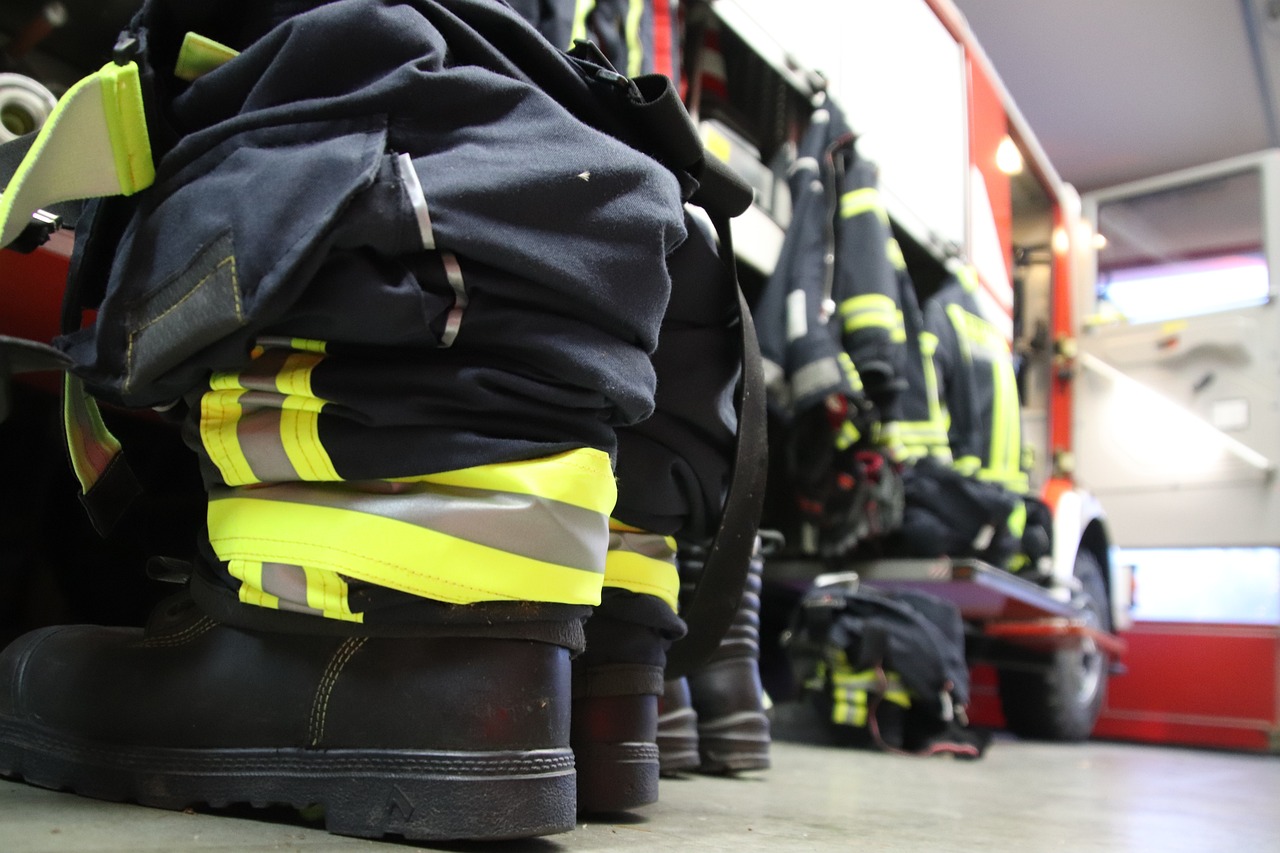Over the years, you may have noticed how volunteer firefighters contribute significantly during emergencies, particularly when it comes to minimizing environmental damage. As your first line of defense against wildfires and other disasters, these dedicated individuals work tirelessly to protect not just lives, but also vital ecosystems. Understanding their role can help you appreciate the profound impact they have on safeguarding natural resources and preventing long-term environmental degradation during crises.
Understanding the Volunteer Firefighter Role
The role of volunteer firefighters extends beyond fighting fires; they serve as invaluable community resources during emergencies. You rely on them not only for extinguishing flames but also for protecting the environment and managing the aftermath of disasters. These dedicated individuals contribute to community safety by being available for various emergency situations, thus minimizing potential environmental damage while also advocating for prevention and awareness. Understanding their role can help you appreciate the impact they have during critical times.
Definition and Overview
Role of volunteer firefighters involves serving in various capacities within the emergency response framework. They typically operate alongside paid firefighters and other emergency services, lending their skills and time to tackle fires, medical emergencies, and natural disasters. You play an imperative part in ensuring that communities are prepared for and can swiftly respond to environmental threats, fundamentally impacting overall safety and resilience.
Training and Preparedness
Around the nation, volunteer firefighters engage in rigorous training programs to prepare them for various emergency scenarios. Skills such as fire suppression, search and rescue, and hazardous materials handling are developed through hands-on experience and classroom instruction. You can trust that these firefighters are educated and well-prepared to address emergencies effectively, improving the safety of both their teams and the communities they serve.
At training sessions, volunteer firefighters learn not only technical skills but also situational awareness and teamwork, which are vital in high-pressure environments. They undergo simulations and drills tailored to various emergencies, ensuring they are ready to respond quickly and effectively. This preparation allows you to feel secure knowing that when emergencies arise, volunteer firefighters are equipped with the knowledge and skills necessary to protect both lives and the environment, ultimately contributing to community resilience during crises.
Environmental Impact of Emergencies
Even the most localized emergencies can lead to significant environmental degradation, affecting ecosystems and wildlife. These incidents, whether natural or man-made, can disrupt habitats, introduce pollutants, and alter land and water usage forever. The collective impact escalates when multiple incidents occur, leading to widespread ecological consequences that diminish biodiversity and hinder recovery efforts.
Types of Environmental Emergencies
For your understanding, emergencies can be categorized based on their nature and the environmental damage they cause:
| Type | Description |
|---|---|
| Natural Disasters | Floods, hurricanes, wildfires that cause immediate and long-term harm. |
| Hazardous Materials Incidents | Spills or leaks that threaten air and water quality. |
| Infrastructure Failures | Dam collapses or chemical plant explosions impacting the surrounding environment. |
| Pest Infestations | Invasive species that disrupt local ecosystems. |
| Resource Extraction | Oil drilling, mining, and logging that deplete natural resources.
|
Consequences of Ignoring Environmental Damage
At the heart of environmental emergencies lies the pressing issue of the consequences you face when this damage is overlooked. Ignoring these impacts can lead to long-term ecological imbalance, health risks for communities, and financial burdens associated with remediation efforts.
Consequently, failing to act on environmental damage can have far-reaching effects. You may witness decreased air and water quality, the loss of biodiversity, and the collapse of local economies reliant on healthy ecosystems. Moreover, the longer you wait to address environmental impairments, the more complicated and costly it becomes to restore affected areas, further complicating recovery efforts for future generations.
Volunteer Firefighters in Action
If a wildfire erupts, volunteer firefighters swiftly spring into action, often being the first responders in their communities. They work tirelessly, utilizing their training and local knowledge to tackle fires and contain hazards, reducing the risk of environmental destruction. Through their dedication and commitment, they play a vital role in safeguarding both landscapes and ecosystems from immediate threats.
Response Strategies
Beside their firefighting efforts, volunteer firefighters employ various response strategies tailored to the situation. They assess the environment, determine evacuation routes, and set up control lines to manage the spread of fire while coordinating with other emergency services. Their familiarity with local terrain enables them to implement effective strategies quickly, significantly decreasing damage to the environment.
Incident Management Techniques
An effective incident management technique involves organizing resources and personnel to achieve a strategic approach in emergency situations. Volunteer firefighters are often trained in command structures that help optimize their operations during crises, allowing them to remain focused and efficient.
In fact, these incident management techniques include establishing clear communication channels, deploying personnel based on their strengths, and maintaining situational awareness. By practicing rapid decision-making and effective resource allocation, volunteer firefighters enhance their capability to respond to emergencies. This structured approach ensures they minimize environmental damage while effectively managing the crisis, showcasing the importance of their role within the community. Their experience provides invaluable insight into incident management, allowing you to trust in their expertise when facing ecological threats.
Collaboration with Environmental Agencies
Despite the challenges posed during emergencies, volunteer firefighters actively collaborate with environmental agencies to mitigate environmental damage. This partnership enables them to access imperative resources, training, and expert guidance, ensuring better preparedness and response to incidents that could harm the environment. By working hand-in-hand with these agencies, volunteer firefighters enhance their effectiveness in protecting ecosystems and communities during crises.
Building Partnerships
Against the backdrop of increasing environmental threats, volunteer firefighters play a vital role in fostering partnerships with local and state environmental agencies. These connections are imperative for training and mobilizing resources swiftly during emergencies, amplifying the community’s response capacity in protecting vulnerable habitats.
Sharing Resources and Knowledge
Knowledge-sharing is integral to the collaboration between volunteer firefighters and environmental agencies. This exchange of information allows both parties to better understand the ecological impact of their actions and improves strategies for environmental protection during emergency responses.
Hence, by engaging in workshops and joint training sessions, you gain insights into the best practices for handling hazardous materials and preventing pollution. This not only enhances your skills but also creates a network where you can exchange experiences and strategies with fellow volunteers and environmental experts. Such collaboration increases your awareness of the delicate balance between firefighting efforts and environmental stewardship, enabling a more effective and informed approach during emergencies.
Case Studies of Successful Interventions
For understanding the effectiveness of volunteer firefighters in mitigating environmental damage, several case studies show their positive impact during emergencies:
- California Wildfires (2018): 30% reduction in fire spread due to strategic containment efforts.
- Florida Floods (2019): Rescued over 100 residents while minimizing property and ecological damage.
- Texas Tornado (2020): Mobilized volunteers saved critical wildlife habitats from destruction.
- Oregon Wildfires (2020): Coordinated water drops reduced fire intensity by 25% in key areas.
Wildfires
Case studies demonstrate how your community’s volunteer firefighters harness training and teamwork to effectively manage wildfires. By conducting controlled burns and proactively establishing firebreaks, they significantly lower the risk of extensive damage to both homes and natural resources.
Flood Response
Before disasters strike, your local volunteer firefighters are equipped to respond quickly to floods, helping to diminish the impact on both human lives and the environment.
At the forefront of flood response, you can count on the dedication of volunteer firefighters to deploy sandbags to divert water flow and safeguard ecosystems. Their collaboration with local agencies ensures timely evacuation of residents while protecting critical wildlife habitats. These efforts not only protect your community but also preserve the surrounding environment during natural disasters.
Community Engagement and Awareness
Once again, volunteer firefighters play a significant role in fostering community engagement and awareness regarding environmental protection during emergencies. Through their active participation in local events and educational programs, they provide necessary information that empowers residents to understand the risks of wildfires, floods, and other disasters. By promoting a sense of responsibility, they encourage individuals to take preventive measures, which can significantly reduce the environmental impact of such emergencies.
Outreach Programs
Beside educating the community, outreach programs organized by volunteer firefighters create strong partnerships with local organizations, schools, and environmental groups. These collaborations enhance your knowledge about emergency preparedness and help you become more involved in initiatives aimed at preserving the environment. Engaging with your community in these programs fosters a sense of unity and collective responsibility toward protecting natural resources.
Promoting Sustainable Practices
One of the key areas where volunteer firefighters make a difference is in promoting sustainable practices among community members. Their guidance can help you adopt environmentally friendly habits that minimize your carbon footprint while maximizing safety during emergencies.
Consequently, by promoting sustainable practices, volunteer firefighters not only enhance your understanding of environmental issues but also encourage proactive measures that mitigate potential disasters. Simple steps like using native plants in landscaping, managing waste responsibly, and adopting water conservation practices become vital components of your daily life. By integrating these sustainable habits, you contribute to preserving the environment and ensuring that your community is better prepared to handle emergencies without further degrading natural ecosystems.
To wrap up
Presently, as you consider the impact of emergencies on the environment, it’s imperative to recognize the vital role volunteer firefighters play in mitigation efforts. Their training equips them to respond rapidly to fires and accidents that can lead to environmental degradation. By effectively managing these situations, they help safeguard ecosystems and protect local resources. Engaging with your community’s volunteer firefighting efforts also enhances your understanding of emergency preparedness, ensuring you are better equipped to contribute to environmental protection during crises.


